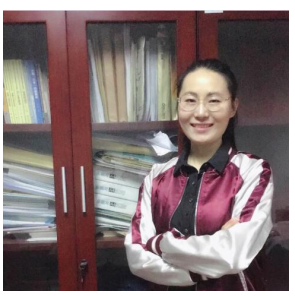时间:2020年12月25日(周五)9:00-11:30
地点:浙江大学公共管理学院新大楼112报告厅
题目一:Structure of capital assets and poverty transitions: An empirical analysis on China
主讲人:司凡,博士生
题目二:Land Transfer and Household Agricultural labor Productivity: An Empirical Study in China
主讲人:张丽婧,博士生
题目三:Import Regulations, Trade Recessions, and Quality Changes of Agricultural Exporters during COVID-19
主讲人:王煜,博士生
题目四:Does Farmer’s Ecommerce Adoption Exacerbate Rural Income Inequality? Evidence from China
主讲人:李晓康,博士生
点评人:季晨,副教授
点评人简介:

季晨,西班牙马德里理工大学农业经济与管理系博士,荷兰瓦赫宁根大学访问博士。加入浙江大学农业经济与管理系之前担任美国密歇根州立大学农业经济与管理系助教授。研究兴趣集中在农产品供应链对产业经济的促进作用,以及农户的生产行为研究。基于国家自然科学基金项目,季晨对畜牧经济有较为深入的研究,并完成了一系列对我国生猪产业的调研,相关的论文发表在Food Policy, Journal of Cleaner Production, International Food and Agribusiness Management Review等国际知名期刊上。她长期担任国际农商管理期刊IFAMAR的匿名审稿人以及Journal of Agribusiness in Developing and Emerging Economies的客座编委。
题目一:Structure of capital assets and poverty transitions: An empirical analysis on China
主讲人:司凡,博士生
摘要:This paper discusses the role of capital assets in household poverty transitions, in particular the structure of capital assets. Based on a multinomial logit model by using a household level data, it shows convincing evidence that household with rich capital assets benefit households well-being. However, it further shows that there is a remarkable difference between rural households and urban households. For rural households, human and social capital increase the probability of getting out of poverty; housing asset, insurance asset and relationship expenditure reduce the probability of returning to poverty while for urban households, productive, financial and human capital increase the probability of getting out of poverty; financial capital reduces the probability of returning to poverty. Based on this research, some suggestions have been given.
题目二:Land Transfer and Household Agricultural labor Productivity: An Empirical Study in China
主讲人:张丽婧,博士生
摘要:Although the importance of land rental on household land productivity and total factor productivity has long been recognized, empirical study on household agricultural labor productivity (HALP) improvement and heterogeneous effect of land rental on HALP for different operation scale remains limited. In this paper, we use instrument variable regression and propensity matching method to assess the effect of land market tenancy on HALP based on the micro household-level panel data from China. We find land rental is strongly associated with the improvement of HALP. Renting in land has a robust positive effect on HALP while renting out land has a negative effect. Moreover, land rental is not always effectively enhanced HALP. Only when land operation scale exceeds a certain threshold, land rental will boost the improvement of HALP. These finds suggest land rental is an effective channel to promote HALP and it should be actively encouraged in rural area of China. In the process of developing land tenancy market, not only should we care about land transfer rate, but also, we should pay more attention to land transfer and operation scale.
题目三:Import Regulations, Trade Recessions, and Quality Changes of Agricultural Exporters during COVID-19
主讲人:王煜,博士生
摘要:Recessions of the global agricultural trade have been observed since the outbreak of COVID-19. This paper investigates whether the imposition of additional import regulations in terms of Sanitary and Phytosanitary (SPS) measures could explain trade contractions, and whether trade recessions differ with the export quality. Using monthly data, we find that increased COVID-19 infection cases in the exporting country resulted in both larger probability and number of additional SPS measures imposed by its importing partners. But the effects differ in the product quality of exporting countries and the stringency of food safety controls of importing countries. Although strengthened SPS regulations impair agricultural exports of the pandemic-hit country, the average export quality increases since lower-quality exporters are more heavily affected by the pandemic. Our findings suggest the importance of quality capacity building for agricultural exporters, especially those serving markets with strict import regulations, to cope with COVID-19.
题目四:Does Farmer’s Ecommerce Adoption Exacerbate Rural Income Inequality? Evidence from China
主讲人:李晓康,博士生
摘要:The revolution of information technology and communication has drastically changed the way people conduct business. The comprehensive and profound influence of e-commerce aroused an endless debate. However, most of the literatures concentrate on the potential of e-commerce to improve agriculture profits and farmer’s income, but the research on whether the e-commerce adoption will further enlarge the digital divide and polarized the rural economics is very rare. With the rapid emergence of Taobao villages and other e-trading platforms, China is leading the developing world in rural e-commerce, which can provide evidence for the effect of farmer’s ecommerce adoption on rural income inequality. This paper aims to assess the distributional effects of e-commerce adoption on rural income inequality and identify the mechanisms through which the impact comes about, using household survey data of 1030 households in China. The combination of propensity score matching and difference-in-difference method is employed to address the sample selection bias associated with e-commerce adoption. The results show that the e-commerce adoption is conducive to promoting the growth of farmers' income but polarized the household income.


